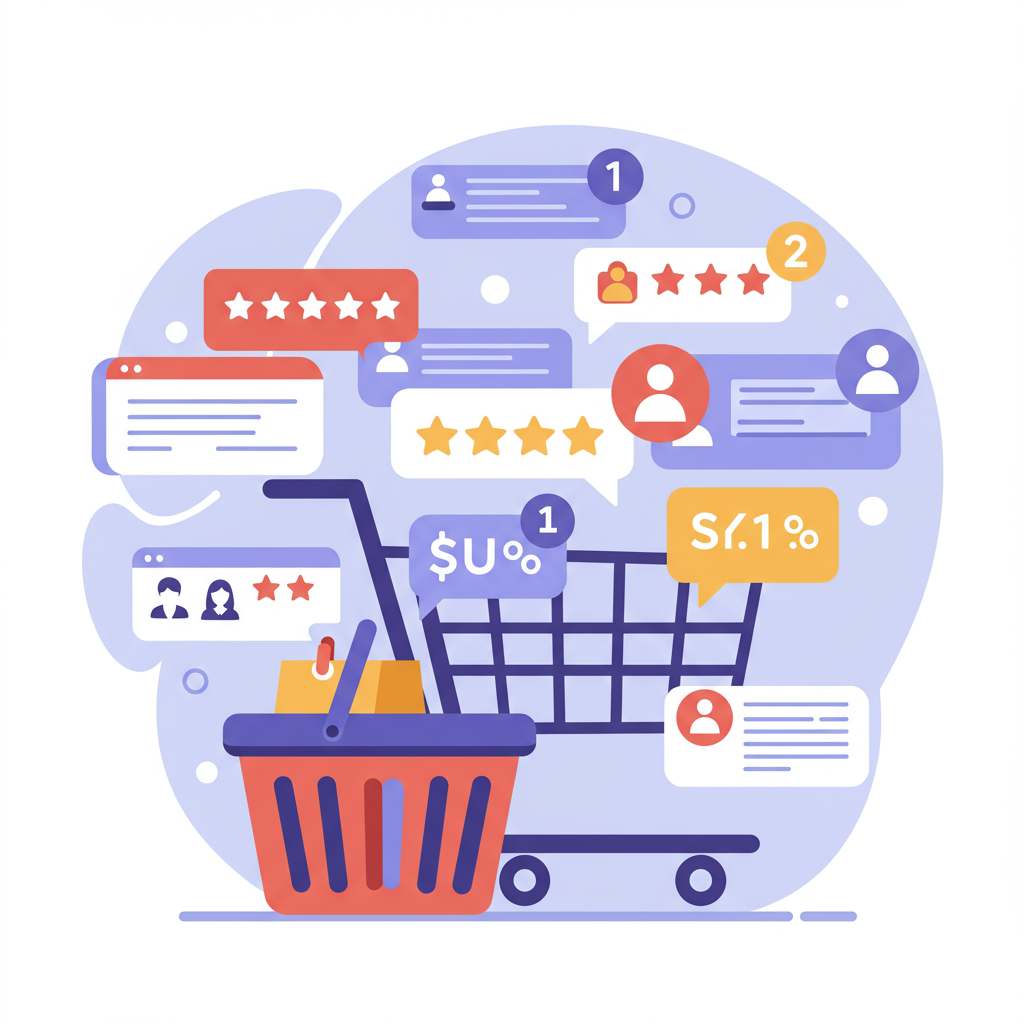Discover how leveraging authentic social proof can transform your Shopify store’s credibility, conversions, and customer trust.
As a Shopify merchant, I’ve faced the same challenges many of you do: how do you build trust with a new visitor? How do you convince someone to click ‘Add to Cart’ when they can’t physically touch your products? For me, the answer became crystal clear: social proof.
Social proof, in its simplest form, is the psychological phenomenon where people assume the actions of others in an attempt to reflect correct behavior for a given situation. In the world of e-commerce, it’s about showing potential customers that others have already bought, used, and loved your products.
For Shopify stores, this isn’t just a nice-to-have; it’s a fundamental pillar of a successful online business. Without the physical interaction of a brick-and-mortar store, we rely heavily on digital signals to convey reliability and quality.
Think about it: when you’re browsing online, aren’t you more likely to buy a product with dozens of five-star reviews than one with none? That’s social proof in action, guiding your decision-making process.
I’ve personally seen the dramatic impact that implementing social proof widgets can have. It’s not just about a slight bump in sales; it’s about fundamentally changing how visitors perceive your brand and products.
Let’s dive into the various types of social proof widgets I’ve found most effective for Shopify stores, starting with the undisputed king: Customer Reviews and Testimonials.
Authentic customer reviews are gold. They provide unbiased opinions from real users, addressing potential concerns and highlighting product benefits in a way that your own marketing copy simply can’t.
I always encourage my customers to leave reviews, and I make it easy for them to do so. Integrating a robust review app allows you to collect, display, and manage these crucial pieces of feedback directly on your product pages.
Beyond star ratings and written reviews, User-Generated Content (UGC) like customer photos and videos takes social proof to another level. Seeing a product in a real-world setting, worn by a real person, is incredibly powerful.
UGC builds a deeper connection and helps potential buyers visualize themselves using your product. It’s raw, authentic, and far more relatable than any professional photoshoot.
Next up are Purchase Notifications, often seen as small pop-ups saying, ‘Someone in [Location] just bought [Product Name]!’ These create a subtle, yet effective, sense of urgency and popularity.
These real-time notifications show that your store is active and that products are in demand. It taps into the ‘fear of missing out’ (FOMO) and can nudge hesitant buyers towards a purchase.
Similarly, Live Visitor Counts or Stock Indicators, like ‘X people are viewing this product right now’ or ‘Only X left in stock!’, can also drive urgency and signal popularity.
While these need to be used ethically and genuinely, they can be very effective in encouraging immediate action, especially for popular or limited-edition items.
Trust Badges and Security Seals are another vital form of social proof, particularly on checkout pages. Logos from payment providers (Visa, MasterCard, PayPal) or security certifications (SSL, McAfee Secure) reassure customers that their sensitive information is safe.
I’ve found that prominently displaying these badges significantly reduces cart abandonment, as they alleviate common security concerns during the most critical stage of the buying journey.
Expert Endorsements or Certifications, if applicable to your niche, can also be incredibly persuasive. If your product is recommended by an industry expert or holds a specific certification, showcase it proudly.
The benefits of integrating these social proof elements are manifold: increased trust and credibility, higher conversion rates, reduced buyer’s remorse, and a stronger brand image.
So, how do you get started on Shopify? The Shopify App Store is your best friend. There are numerous apps designed specifically for social proof, covering everything from reviews to pop-up notifications.
When choosing an app, I look for several key features: ease of integration, customization options to match my brand, mobile responsiveness, and analytics to track performance.
Some apps offer a suite of social proof features, while others specialize in one area. It’s worth exploring a few to see which best fits your specific needs and budget.
Remember, authenticity is paramount. Never fabricate reviews or notifications. Customers are savvy, and inauthentic social proof can severely damage your brand’s reputation.
Strategic placement is also crucial. Don’t overwhelm your visitors with too many pop-ups or badges. Integrate social proof naturally into your product pages, homepage, and checkout flow.
Finally, engage with your social proof. Respond to reviews, both positive and negative. This shows that you value customer feedback and are committed to providing excellent service.
Implementing social proof widgets has been a game-changer for my Shopify store. It transformed my website from a static catalog into a dynamic, trustworthy shopping experience.
I truly believe that every Shopify merchant can benefit from these strategies. It’s about leveraging human psychology to build confidence and drive sales.
What do you think about this article? I’d love to hear your thoughts and experiences with social proof on your own Shopify stores.
Start experimenting with social proof today, and watch your Shopify store flourish. It’s an investment in trust that pays dividends in conversions.






